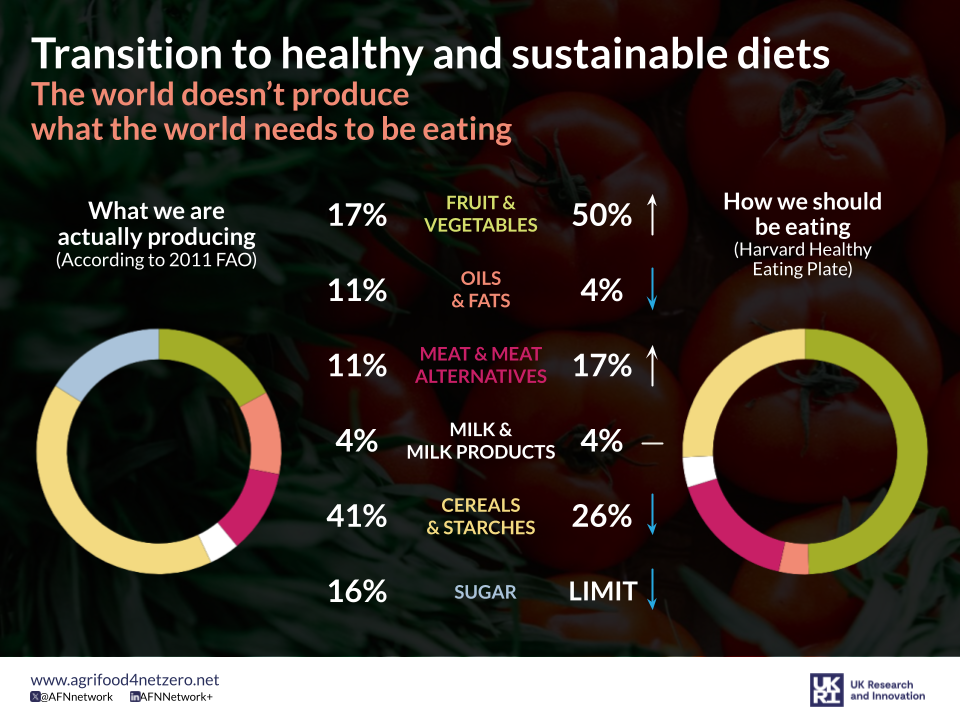Judith Batchelar: Supermarket & food chain insights

If you missed our annual network gathering last month, you can now watch the key presentations on YouTube, by clicking the names of our three distinguished and very thought-provoking speakers below.
Judith Batchelar OBE is deputy chair of the Environment Agency and former brand director for Sainsbury’s. Navaratnam Partheeban OBE is a farm vet and founder of the British Veterinary Ethnicity & Diversity Society. Sue Pritchard is a farmer and chief executive of the Food, Farming and Countryside Commission.
Key points from Judith’s presentation on supermarkets and food system change and challenges:
“The world doesn’t produce what the world needs to be eating! We need to produce three times more fruit & veg globally than we are currently, if everyone is to eat a healthy, planet-friendly diet”
- Supermarkets are going to be “absolutely fundamental to driving [food system] change” at the scale and pace needed.
- Retailers try to think systematically and holistically because “they have to make single interventions with multiple holistic benefits” – so they need really good, clear advice to back up their decision making. This is a big opportunity to influence.
- Transition always needs market pull from consumers, as well as supply side push – getting that push and pull right is really important.
- However, supermarkets already know how to drive consumer behaviour. But if every consumer woke up tomorrow and said “I’m going to eat a healthy and sustainable diet”, the world would not be able to produce that food due to the current business model and supply base. We need to produce three times more fruit and veg globally than we are currently, if everyone is to eat a healthy, planet friendly diet.
- A small number of countries produce much of the world’s traded fresh produce. “This is unbelievably risky and unbelievably challenging”.
- The UK faces a huge trade gap in fruit and veg. Boosting fresh produce is a huge opportunity, but innovation will be key. This is also a chance to build resilience and use novel crops and more of the 7000+ edible plants on the planet.
- The elephant in the room is that we have a fragmented food system based on 500m poor smallholder farmers at one end, and global corporations controlling 35% of the world’s food at the other. An equitable food system will need to unlock the points of consolidation and develop trading relationships and contract terms that share risk.
- We need to make all of these changes while still tackling climate change. But with the likelihood of extreme weather events having gone up 10x in the last 50 years, it’s easy to become distracted dealing with events rather than the ongoing work of change.
- “We’re the first generation to be able to really understand climate change, and the last to be able to do something about it”.

I looked up Judith’s point about the UK’s fruit and veg deficit, and it really is rather large: Out of ‘food, feed and drink’, fresh fruit and veg is the highest value category for imports, totalling £6.6 billion (2022). Exports of fresh fruit and veg, in comparison, totalled only £149m. That’s a trade deficit of £6.45 billion! See full government stats here.



